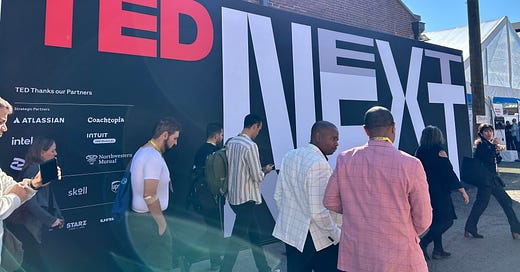When I got to see Malcolm Gladwell speak at TEDNext in Atlanta in October, he said something that has stayed with me since. It hits me every time I read an article or a post, and I think it will continue to nag at me each time I sit down to write.
Gladwell’s most recent TED talk was just one stop on his apology tour, which is also how he’s launching his new book, The Revenge of the Tipping Point. He has been trying to explain how he had gotten it so wrong in The Tipping Point when he argued that broken windows policing, or “stop and frisk,” was the greatest tactic ever used in stopping crime.
His bestseller was proven wrong shortly after a U.S. District Judge ruled in favor of David Floyd and the plaintiffs in 2013, finding that “stop and frisk” was discriminatory and violated both the Fourth Amendment (protection against unreasonable searches and seizures) and the 14th Amendment (equal protection under the law).
In 2014, this form of policing came to a screeching halt. And instead of an increase in crime like many expected, the city experienced historically low levels of crime “to the point,” as Gladwell explains, “that New York City is as safe as Paris, which is not a sentence I ever thought anyone would ever say in my lifetime.”
During both his talk as well as the Q&A afterward, Gladwell repeatedly pointed to his hubris as a young writer striving to write a book for the ages:
I wrote, "I know this is what happened," and what I should have said is, "This is what I believe happened now," right? And those words, "I believe happened now," have to be at the center of any understanding of how the world works. We have to acknowledge that we are representing the position of this very moment, and that that position could change if the facts change, right?
This is what I believe happened. This is what I believe to be true now … today. I think this is such an important modification for each of us to consider when we post and opine on certain trends and issues. It is a way for us to hold our positions a little more lightly, or as Gladwell explains in an interview with Trevor Noah, “I always use the phrase that ideas should be held loosely. Values, you hold tightly, but ideas, you hold loosely.”
For Gladwell, the opposite of holding ideas loosely is certainty. As he tries to go back in time 25 years, he sees the excess of certainty in his younger self:
I told this story like I knew the answer and it wasn't over. I realize when I look back at my younger self, I was way too certain about the ideas that I was putting forth. And I thought that if you wanted to win over an audience, you had to communicate certainty. And now I realize that's actually backwards, that you're more willing, you're more capable of winning over an audience when you admit to the uncertainty and the fragility of your position. People want that. They like that. They appreciate that spirit far more. And people are much more likely, I think, to be suspicious of someone who seems falsely certain.
What an encouraging thought that we can acknowledge the vulnerability of our own positions — that it’s okay to say: I’m not sure; I don’t know; or, I think so. We must be willing to learn, unlearn, and learn again.
More importantly, that fragility or vulnerability reminds us to stay curious and open to having our minds changed — that being a little less certain of ourselves can be a good thing. In fact, intellectual humility might even engender more trust and potentially even more influence when we know what we know … today.
Because there’s always tomorrow, another day with new and surprising ways to upend the arrogance of what we know to be true today.
Dr. Michelle Weise is the author of Long Life Learning: Preparing for Jobs that Don’t Even Exist Yet and consults as an outsourced Chief Innovation Officer for businesses and higher education institutions. For more information, please visit: michelleweise.com.





